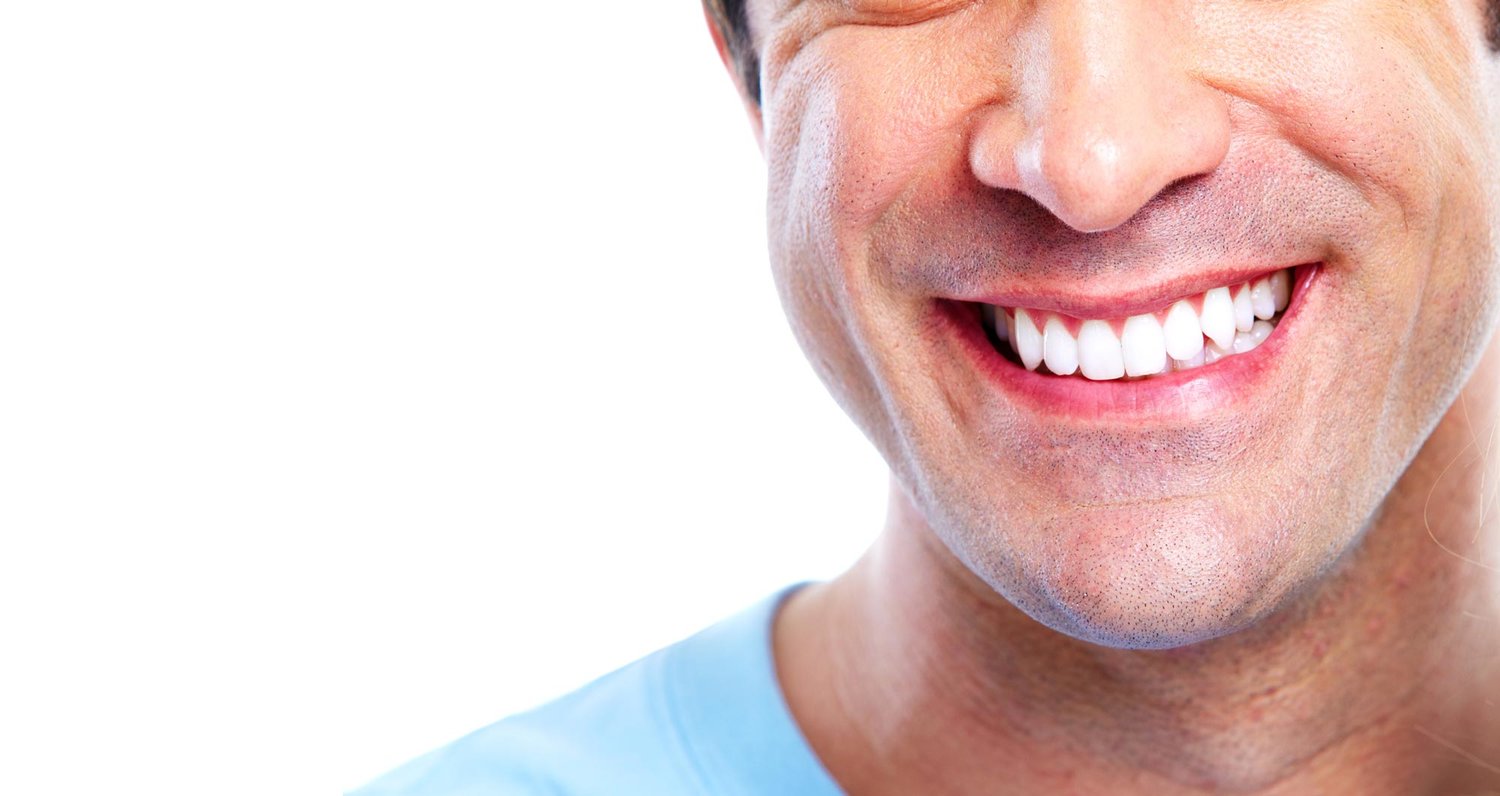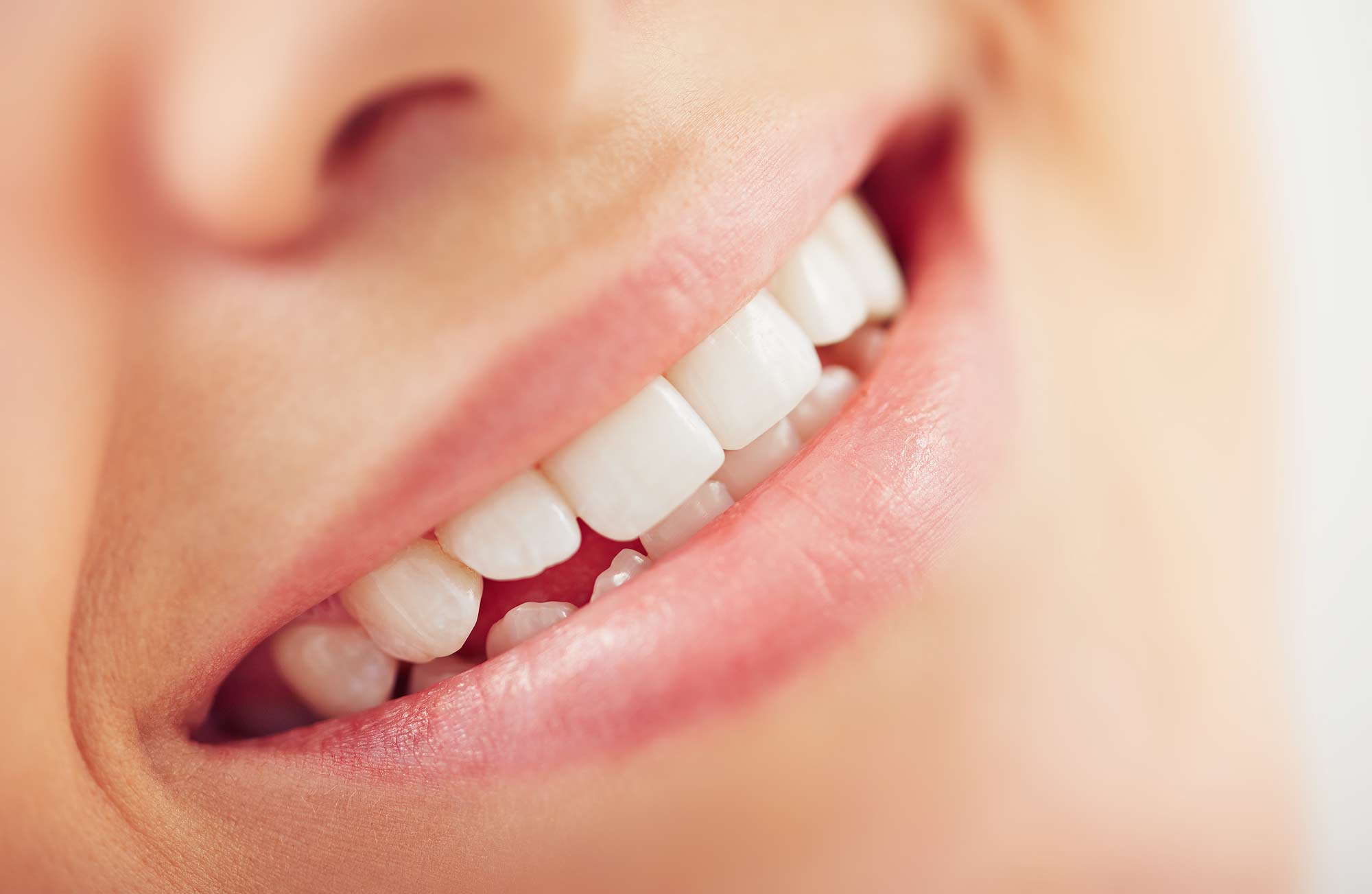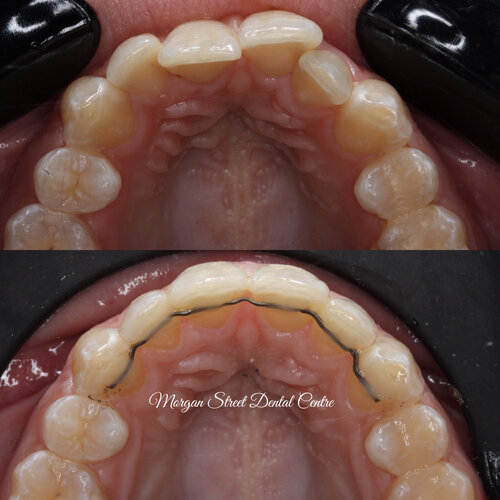Crooked teeth are a type of mal-occlusion, also known as a misalignment of your teeth that can lead to oral health issues.
Some people may only have one crooked tooth which causes minimal concerns. However, others may have several crooked teeth.
In this article, we’ll take a closer look at the causes of crook teeth, the impact on your health, and the most effective treatment options.

What Causes Crooked Teeth?
Crooked teeth can have several causes. Some of the most common include:
- hereditary causes
- thumb-sucking
- prolonged use of a bottle as a child
- use of a pacifier beyond age 3
That said, several other culprits can contribute to crooked teeth. Let’s look at some of the possible causes in more detail.
-
Genetic Traits
Crooked teeth can be hereditary or passed down from your parents or grandparents. This is the most common cause of misaligned teeth.
Hereditary traits may influence the size of the jaw or teeth. If your jaw is too small, or if your teeth are too large, there may not be enough space for your teeth to grow without overlapping each other.
-
Childhood Habits
Many babies and toddlers self-soothe by sucking their thumb, which typically isn’t a problem when a child is young.
However, if the habit continues after a child’s permanent teeth come in, thumb-sucking may cause problems with the alignment of their teeth. It may also cause issues with the proper growth of the mouth or jaw, and cause changes to the roof of the mouth.
While not as serious as thumb-sucking, prolonged use of a pacifier may also cause changes to a child’s teeth or jaw. To prevent tooth alignment issues, it is recommended that a child should be weaned from their pacifier by age 3.
-
Other Possible Causes
In addition to childhood habits and hereditary factors, crooked teeth may also be caused by:
- dental crowding or insufficient space within the jawbone
- injuries that causes misalignment of the jaw
- cleft lip and palate issues
- teeth that have been blocked from breaking through the gums
- abnormally shaped teeth
- extra teeth
- crowns and fillings that don’t fit properly
- tumours in the jaw or mouth


Can Crooked Teeth Cause Any Dental or Health Issues?
Teeth that overlap may make it more difficult to bite or chew your food properly. In more severe cases, teeth that overlap badly may result in an:
- overbite
- underbite
- open bite
- crossbite
Misaligned teeth may also increase the risk of tooth decay, especially if the teeth that overlap make it difficult to brush or floss thoroughly.
Because of the inability to brush and floss properly, overlapping teeth may also raise your risk of gum disease, known as gingivitis. If left untreated, this can progress to a more serious infection known as periodontitis.
Moreover, teeth that are seriously crooked or misaligned may cause physical pain, headaches, and jaw pain.
If the overlapping is severe, it could also affect your emotional health. You may feel self-conscious or embarrassed about your teeth. This could negatively affect your confidence and self-esteem.
Should You Fix Crooked Teeth?
The decision to fix crooked teeth often comes down to the following factors:
- cost
- severity of the overlapping teeth
- the need to minimize or fix other problems associated with the misaligned teeth
If the overlapping is minimal, your Wagga dentist or orthodontist may not recommend treatment. Instead, they may provide advice on how to effectively brush or floss the affected teeth to avoid any oral health issues.
They may also consider your age, as treatment is often more affordable and easier to correct with younger patients.
However, if the overlapping is moderate to severe, your dentist or orthodontist will likely suggest treatment options to correct the misalignment.
According to a 2016 study, data from 100 participants ages 17 to 21 found that, in general, oral health-related quality of life improved after orthodontic treatment of moderate to severe malocclusion.
What Are The Treatment Options?
If you decide to move forward with fixing teeth that overlap, the next step is to determine the type of treatment. Your dentist or orthodontist will guide you in this process and help you choose the best treatment for your situation.
Here are some of the most popular treatment options for overlapping teeth.
BRACES
Traditional braces, which use metal brackets, wires, and elastic bands to correct your teeth, are often the first line of defense for overlapping teeth.
Braces work by putting constant pressure on your teeth for an extended period of time, typically 1 to 3 years.
This pressure can gradually reshape your jaw, which allows your teeth to move into their correct position. Treatment for adults typically takes longer than it does for children or teenagers.
The success rates of braces can vary depending on several factors, such as:
- your age
- when treatment begins
- what your treatment goals are
- how well you follow your orthodontist’s instructions

CLEAR ALIGNERS
Clear aligners have grown in popularity as an option for realigning overlapping or crooked teeth, and are designed to make orthodontic treatment less conspicuous. However, clear aligners are typically not recommended for more severe overlapping issues.
While not completely invisible, these clear, flexible, custom-fit trays fit snugly over your teeth, and are a lot less noticeable than traditional braces.
For Invisalign and other clear aligners to work, you need to wear them for 20 to 22 hours a day. You’re only meant to remove them when you’re eating, brushing your teeth, or cleaning the aligners.
VENEERS
Dental veneers attach to the front of the tooth to improve its appearance. While not recommended for moderate to severe cases, some dentists may recommend veneers for mild cases of misalignment.
TOOTH EXTRACTION OR SURGERY
If your overlapping is more severe, your dentist or orthodontist may talk to you about removing one or more teeth. Or, they may suggest surgical procedures to reshape your jaw.
Surgical treatment is typically only recommended in cases where braces, aligners, or other less invasive options wouldn’t be effective at correcting your overlapping teeth.
It’s important to note that veneers don’t change the position of your jaw. They can only improve the appearance of your teeth.
Talk to us
Crooked teeth are a common dental issue. If the overlapping is minor, a dentist or orthodontist may not suggest treatment.
But if the condition is affecting your dental or physical health, or your emotional health and self-esteem, your dentist will likely suggest options for correcting your teeth.
Treatment options usually include braces, clear aligners, or veneers. In more severe cases, tooth extraction or surgery may be recommended. If you have concerns about overlapping teeth, make an appointment to talk with your dentist or orthodontist.
For more information, feel free to contact us on (02) 6921 9500 !
